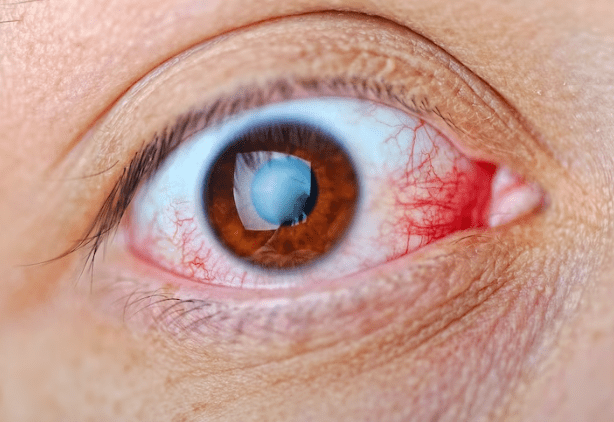With the world getting evolved, the source of pollution and allergy comes in different form. Eye is one of the most sensitive part when get affected, sometime affect the lifestyle. Eye allergies which is known as allergic conjunctivitis, are a common condition affecting people worldwide. This condition occurs when the eyes react to allergens, triggering a range of symptoms that can be both uncomfortable and irritating. Similar to other allergic condition, it is essential to understand triggering factor of eye allergies for managing this condition effectively.
Eye Allergy – Cause:
People are prone to many allergic element like food, air pollution, skin exposure, etc… some of the major cause of eye allergy include pollen, pet dander, dust mites, mold spores, and certain irritants like smoke or pollution. After the exposure, the chemical called histamine is released which then allergic symptoms started to show up.
Symptoms of eye allergy:
1. Itching: major symptoms of eye allergies is itching. intense itching is experienced in and around the eyes.
2. Redness: The eyes may become red due to the dilation of blood vessels.
3. Watery Eyes: This is one of the common symptom of eye allergy. the tears are produced to clear up the irritants.
4. Swelling: puffy eye like appearnce due to the swelling of the eyelids and the conjunctiva.
5. Burning Sensation: Some individuals may experience a burning or stinging sensation in their eyes.
6. Sensitivity to Light: Some people may feel uncomfortable to light. This condition of Increased sensitivity to light, known as photophobia.
7. Stringy Discharge: A clear, stringy discharge may be present, especially upon waking up in the morning.
Types of eye allergy:
Seasonal Allergic Conjunctivitis: As the name suggests, this type of eye allergy is common during certain seasons . Most of the time symptoms are triggered by seasonal allergens such as pollens. People with this allergy can take some preventive measures to manage the symptoms
Perennial Allergic Conjunctivitis : Unlike seasonal allergy, this occurs throughout the year and is often triggered by indoor allergens like dust mites and mold.
Vernal Kerato conjunctivitis: This is a more severe form of eye allergy affecting the young males. This is considered chronic and caused by inflammation in the conjunctiva.
Giant Papillary Conjunctivitis: This condition is more common among people who wears contact lens. It is characterized by the formation of large papillae on the inner surface of the upper eyelids.
Diagnosing & Treatment:
Diagnosing eye allergies sometime become very hard and challenging, especially for the doctors in the reputed eye hospital in Chennai. Treatment options usually focus to relieve symptoms and reduction in the response
1. Antihistamine Eye Drops: These eye drops blocks the effect of histamine and reduce the symptoms like itching and eye irritation
2. Decongestant Eye Drops: Decongestant eye drops works reducing the swelling in the eye lids and redness
3. Mast Cell Stabilizers: these are the reliever for long term, as they work by reducing the histamine release from the mast cell.
4. Corticosteroid Eye Drops: These are used in severe cases to reduce inflammation. Most of time, it was adviced for short term due to its side affects.
5. Oral Antihistamines: Adding up to other treatment options, oral medication is also prescribed for the better effect
6. Avoidance of Triggers: above all, identifying and avoiding allergens is the best way of managing eye allergies. This may involve making lifestyle changes, such as using air purifiers, keeping windows closed during high pollen seasons, and maintaining a clean living environment.
Preventive Measures:
1. Wear Sunglasses: Wearing sunglasses can help protect the eyes from allergens and reduce sensitivity to light.
2. Avoid Rubbing Eyes: Rubbing the eyes can worsen symptoms and potentially lead to other complications. Instead, use a cold compress to soothe itching.
3. Regular Eye Hygiene: Keeping the eyes clean by washing the face and eyelids regularly can help remove allergens.
4. Contact Lens Care: If you wear contact lenses, follow proper hygiene practices and consider switching to daily disposable lenses to reduce the risk of allergen accumulation.
5. Allergy-proofing the Home: Taking steps to minimize indoor allergens, such as using allergen-proof mattress and pillow covers and keeping pets out of bedrooms, can be beneficial.
So, the eye allergy can be easily managed and prevented, once the trigger is found. Get help from the professionals through regular eye investigations and examinations. This would make your life better.



